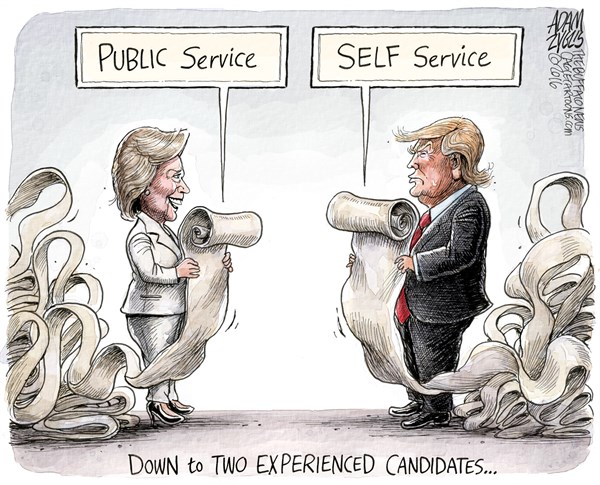
The Big Picture –
By Glynn Wilson –
Isn’t it about time someone did a take down on the Internet meme?
If we truly want to change people’s attitudes and create a more just world, what the world needs is scientifically objective journalism, not more partisan viruses of the mind being spread in all the wrong places.
According to Wikipedia, USA Today. Richard Dawkins, Webster and other sources, an “Internet meme” is a concept that spreads rapidly from person to person via the Internet, largely through Internet-based E-mailing, Web-based blogs, forums, image boards, and especially social networking sites such as Facebook, Instagram or Twitter, less so through instant messaging and video hosting services such as YouTube.
But the way people are using the term today bares little resemblance to its intellectual origin in the scientific theory of human evolution. The word meme was coined by Richard Dawkins’ in his 1976 book The Selfish Gene. It made its way into dictionaries as “an idea, behavior, style, or usage that spreads from one person to another in a culture,” and later became “an amusing or interesting picture, video, etc., that is spread widely through the Internet.”
But the original concept is more complicated than that. The way Dawkins originally saw it, a meme acts as a unit of information for carrying cultural ideas, symbols, or practices that can be transmitted through communication from one mind to another in writing, speech, gestures, rituals, or other imitable phenomena with a mimicked theme. Some academic supporters of the concept came to regard memes as cultural analogues to genes in that they self-replicate, mutate and respond to selective pressures.
I became aware of the concept as an academic researcher in the field of science communications studies, and was exposed to Richard Brodie’s 1996 book: Virus of the Mind: The New Science of the Meme.
So I’ve always seen the meme as a virus of the mind, a contagion in our cultural communications system to be stamped out, not spread. I see most Internet memes as a form of propaganda, spreading like a contagious virus. The only antidote I see is to combat the meme virus with scientifically objective journalism, not to spread it far and wide by sharing it on Facebook.
Take organized religion and myth as examples of memes. We face those every day. This should be countered with science journalism, not a pandering meme that tries to use the language virus of the religion meme to turn people around politically.
Partisan political propaganda spreads from person to person through Facebook already, but more of that will never solve our communications problems, especially since these images tend to be spread around in groups that already agree with the message. People who see the meme as the way to change public opinion, attitudes and behavior are fooling themselves and wasting their time along with massive amounts of bandwidth.
To make matters even more complicated, memes are seen by some scientists as analogous to genes, which vary in their aptitude to replicate. Successful memes remain and spread, whereas unfit ones stall and are forgotten. Thus memes that prove more effective at replicating and surviving are selected in the meme pool. So you might see a successful meme as a viral one. That’s how the Google and Facebook algorithms see it. But what if the virus being spread is a false reality that leads to less understanding, more war, the degeneration of human evolution, not its improvement and helping us to survive and thrive?
For example, Donald Trump can spread his meme of being a successful business man (not so much) and the only dictator who can solve our problems (not), and millions of people will go along, especially since the mainstream corporate media will just profit from telling “both sides” of the story. They will help by spreading his memes on Facebook and Twitter. Hillary Clinton’s army will do the opposite. But at the end of the campaign what does that get us? Whoever spreads the most memes wins the election? Is that what the fight has come down to?
The problem with this way of thinking is that there is no more successful a meme than the concept of a sky god looking down at the earth and humanity while directing the action on the ground like Santa Claus to reward or punish good kids and bad. Scientists should know better.
A successful gene is one that makes a species better at adapting to its environment, not worse. So a successful meme would be one that changes public attitudes, say against war in the name of religion?
Some commentators have likened the transmission of memes to the spread of contagions. Social contagions such as fads, hysteria, copycat crime, and copycat suicide exemplify memes seen as the contagious imitation of ideas. So by this way of thinking, memes are bad.
But is it possible there are good memes and bad memes like there are good genes and bad? Some gene mutations lead to cancer. Others to higher intelligence and more effective communication. Good memes lead to less war, less racism, for example.
Jack Balkin, in his book In Cultural Software: A Theory of Ideology, argued that memetic processes can explain many of the most familiar features of ideological thought. His theory of “cultural software” maintained that memes form narratives, social networks, metaphoric and metonymic models and a variety of different mental structures. He maintains that the same structures used to generate ideas about free speech or free markets also serve to generate racist beliefs.
So can we inject one virus meme into the system to counter another virus meme? Will that stop the contagion of racism?
If you are a young Arab man in the Middle East and you are subjected to constant memes about the corruption of the West and told the only way to get into heaven is to strap on a suicide bomb and punish the infidel as a martyr, do you really think one little picture and a few words on Facebook showing the opposite message are going to change the mind?
I suspect it will take a few more words than will fit on one picture. It will take a lifetime of science-based education, or at least a few stories in the Arab press that life does not have to be like that. Of course it also might be helpful if the West would stop bombing their homeland and talking about every successful strike as a “victory.”
No matter what I say, this meme war will go on, and most people just share them in Facebook groups where most of the members already agree with them anyway.
But can we not learn that participating in spreading these viruses makes the contagion worse? Can’t we just cover our mouths with a tissue and wash our hands more often?
In addition to people being mad at both the Republican and Democratic Parties in the U.S. for their mematic messages, people are mad at the mainstream, or lamestream media. This is in part due to how controversies are played up and framed. By simply reporting every story as if there is a “both sides,” this does nothing to combat the meme virus and only spreads the bad thinking. At what point does someone decide who is right and who is wrong?
Let’s say we spread a little scientifically objective journalism and see what effect that has over time? Hey, it’s at least worth a try. A story is as easy to share as a picture. I say a thousand words is worth more than a meme.
So okay maybe the millennial generation is too hooked on Pokemon and too brain dead to click on the links and read the stories. So does that mean we are doomed? Maybe they will grow up and learn to read one day. We can hope. What have we got to lose by trying? Only human survival on planet earth.
I’m not sure there is a single picture or a thousand words that can ensure this. That’s why I run at least one picture and at least a thousand words every day. Now if we could get a thousand people liking and sharing that every day, perhaps we could make a critical difference over time — and build the economy to pay for it to boot.














Is an editorial cartoon an ancient low tech meme?
I suppose some are. Although most of the one’s produced these days are about as banal and balanced as the newspapers they are designed to serve. So unless they are meant to persuade, not just to amuse, probably not.